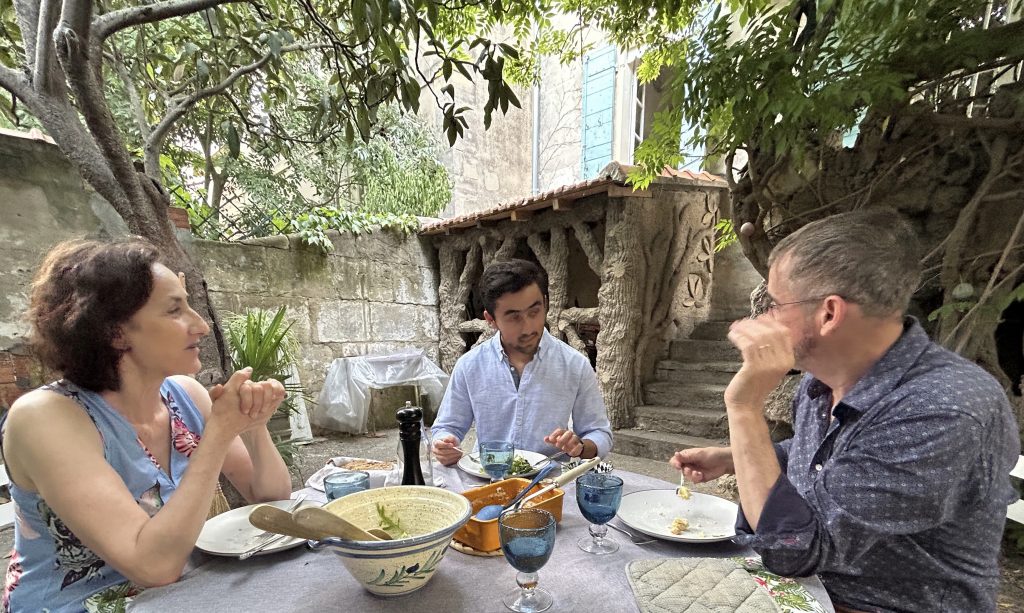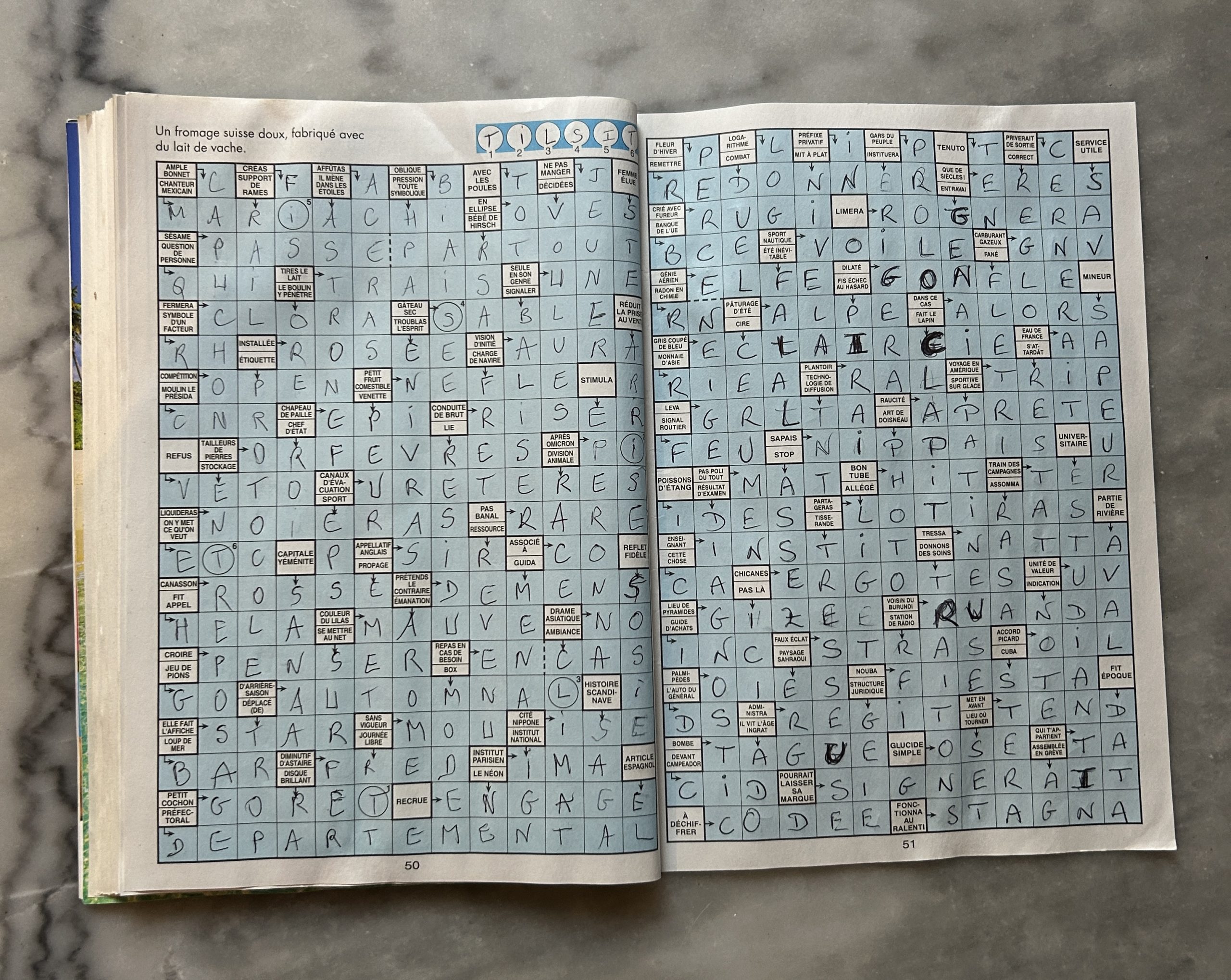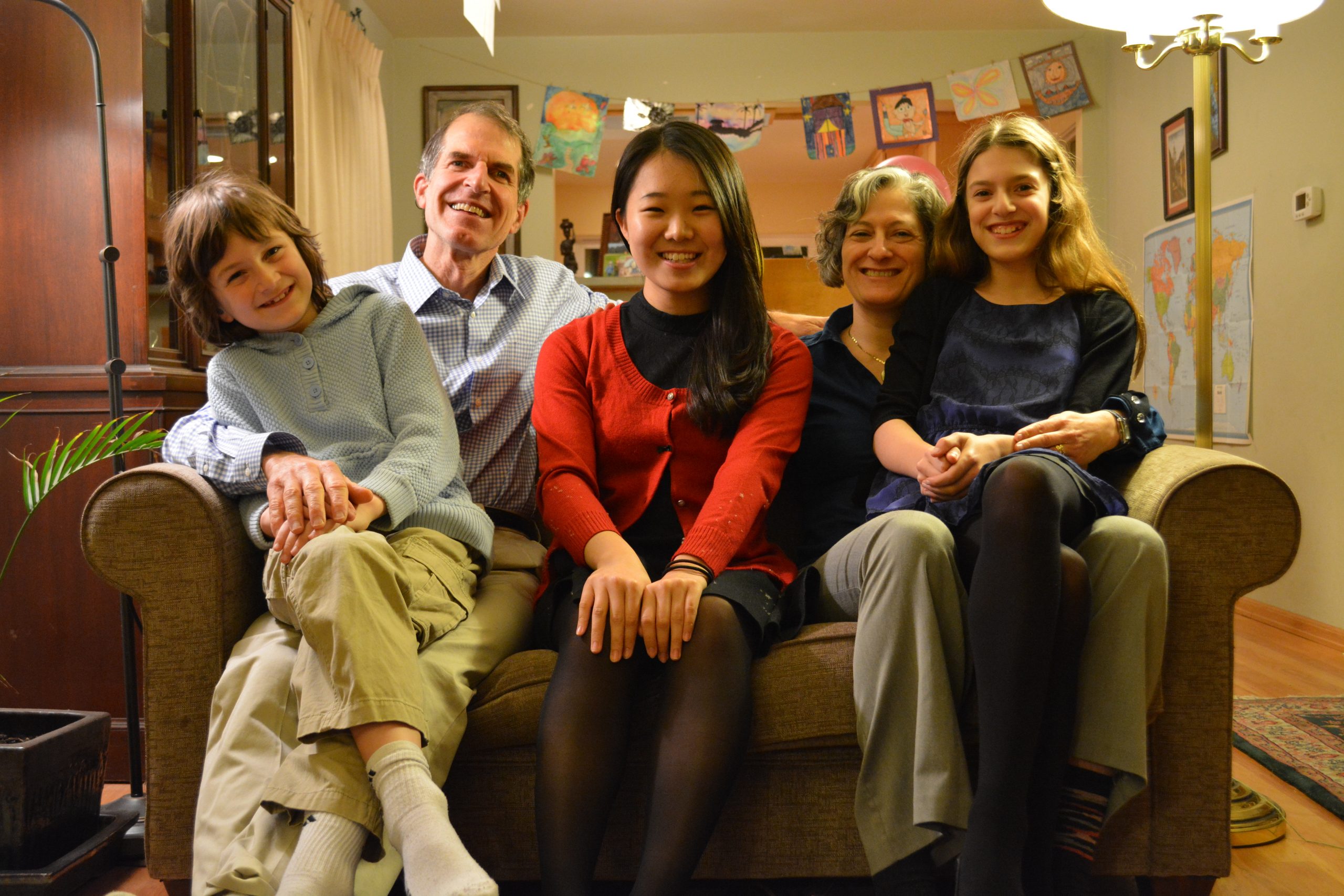
When friends visit his hosts, Marthe Poudevigne (left) and Frédéric Poudevigne (right) revert from English back to their native French. Photo by Danny Pottharst.
Text by Danny Pottharst
I am no stranger to incomprehension. One might even say we are close friends: I’ve grown up in constant tandem with it because of my deafness, which hinges my detection of sound on the cochlear implants I was implanted with as an infant. Though the degree of detection I can accomplish with this technology approaches that of a hearing individual, it is nevertheless limited, especially in noisy environments.
The weightless, alienating confusion of mishearing words or failing to hear them at all has therefore become an intimately familiar sensation to me, and I’ve learned to embrace auditory incomprehension as I navigate the soundscape of my life.

As I prepared to leave home and travel abroad alone for the first time to study abroad in Arles, I thought often about how my relationship with incomprehension might be complicated by learning a new language. Questions I had never confronted before nagged at me: What happens when sound waves generated by someone else’s speech are received by my auditory nerve, sent to my brain and recognized by it as sound, but are not translated into intelligible meaning? What happens when incomprehension is not a result of failure to hear but a result of failure to understand?
I have spent over two glorious weeks in Arles. And so far, my questions remain largely unanswered and my concerns remain non-factors—thanks to English.
My first conversation with the family hosting me in Arles assuaged many of my doubts. As I struggled to speak French beyond the most perfunctory greetings and half-formed sentences, it quickly became evident that my host parents are proficient English speakers. After weeks of worrying about communication difficulties with them, this revelation was a profound relief.
However, even as my anxiety faded and I settled into a routine with my host family, I couldn’t shake an unsettled feeling. Here I was in a foreign country that speaks a foreign language, but I was predominantly speaking my native language. English had followed me across continents, swaddling me in a cocoon of comprehension where I had been expecting the opposite.
And the more I interacted with Arlesians and explored the city, the more I realized that English hadn’t followed me there—it had been waiting all along.
This is the privilege of the English speaker: to ride the wave of the most successful linguistic imperial project of the 21st century—and perhaps in human history. According to the International Center for Language Studies, roughly 1.52 billion people speak English as of 2025, the most of any language. Beyond sheer volume, English is truly ubiquitous: it’s spoken in 186 out of the world’s 195 countries.
No wonder, then, that my host parents could converse in English with ease and that many Arlesians could address me and other students in English without missing a beat.
No wonder, too, that a similar linguistic crossover does not often occur between host families and exchange students in the United States. My family has hosted several exchange students, none of whose native languages we have spoken. When they stumbled over their English or failed to understand ours, none of us could turn to anything other than English to bridge the communication gap. Here in Arles, when French fails, English is always waiting as a backup.
When I discussed this phenomenon with Shiori Usui, a former exchange student who stayed with my family, she remembered being aware that she spoke “Japanese English”—that her English language capabilities, no matter how developed, would never transcend her native language. Despite this potential obstacle, though, people listened to her when she spoke, and that made her feel not only heard but fundamentally respected.

With this perspective, I realize that my nervousness about speaking a new language in a foreign environment must have been nothing compared to the anxiety that exchange students traveling to the U.S. may feel.
In Arles, I’ve gotten a taste of that experience when my host parents dine with friends. Incomprehension hums at the dinner table in their outdoor patio, where they converse in French in lightning-quick exchanges that a novice like me cannot begin to understand. When the vocalizations of their questions to me in French dissipate into the air too quickly to catch, incomprehension kickstarts my pulse and sends my brain into a frenzy of improvisation. It lingers, perched on my tongue, as I tentatively answer “Oui!” and hope for the best. I am an audience member watching them and their guests, actors in a play, enthusiastically gesticulate and glide over their words as smoothly as softened butter.
My homestay has by no means been a plunge into the deep end of French, however. That plunge — forsaking one’s native language and learning a foreign one— is an option for me, whereas it is often a necessity for exchange students traveling to the U.S. Incomprehension is scary for anyone, but it is a luxury to experience from the safe zone that English provides. In the rare moments I find to sit in my incomprehension, like those at the dinner table, I understand a different kind of meaning communicated in people’s body language and vocal inflections—a meaning that clues me into some deeper, primal element flavoring their words.
Of course, I can’t feasibly achieve French fluency before I leave Arles. I can, however, embrace the difficulty of learning a new language as Shiori did and exchange students everywhere do. I can remain critically aware of English’s global hegemony. And I can, as Shiori said, listen. In the end, that’s all any of us can do in situations of language difference: listen to one another without judgment in a shared humanity that transcends those differences. That is how we rediscover the lost art of incomprehension.





